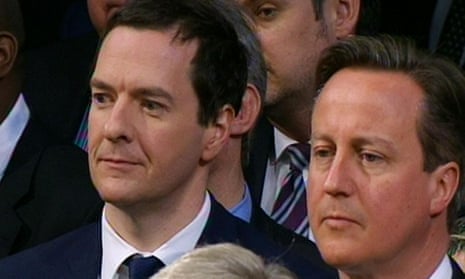Laws to make life tougher for trade unions. Laws to make it easier for tenants to buy their own homes. Laws that will prevent the government from raising the rates of income tax, national insurance or VAT. There was more than a hint of the early 1980s about the speech drafted for the Queen by David Cameron.
Politically, the prime minister is stealing the idea of one-nation Britain, which Ed Miliband briefly ran with half way through the last parliament. The Tory thinking is simple. Labour no longer connects with many of its traditional supporters. Margaret Thatcher found a way of developing a brand of working class Conservatism. So why not give some of Thatcher’s ideas another whirl?
As in the last parliament, the Conservatives are making an early attempt to develop a narrative that will sustain them through the next five years. The message is that the government is on the side of those who want to get on. It wants to promote owner-occupation. It wants to cut red tape for small businesses. It wants to ensure that people keep more of what they earn.
There are clearly problems with many of the government’s proposals. Should there be another financial crisis and recession in the next five years, George Osborne will rue the fact that he can’t touch income tax, national insurance or VAT.
One of the problems of the economy in the past decade has been the inability of workers to negotiate real wage increases. The weakness of trade unions has been part of that story and it is hard to see what measures aimed at making strike action in the public sector more difficult will do to help.
Likewise, a lesson from the 1980s is that it proved a lot easier to flog off homes to council tenants than to build new affordable properties to replace them.
Ever since he floated the idea during the election campaign of a new right-to-buy scheme aimed at housing association tenants, Cameron has been receiving warnings from the housing industry of the possibility that he will be exacerbating Britain’s already acute housing crisis. Building costs are rising. There is a shortage of skilled labour. Demand for property already exceeds supply in some parts of Britain. Replacing the homes that are sold off under the new right to buy will be expensive and may not happen.
There is a tension between the rhetoric of a one-nation Britain and the reality of cuts in tax credits to shave £12bn off the welfare bill. It is not immediately obvious that demanding less generous paid holidays and maternity leave in negotiations with the EU ahead of a referendum will endear the prime minister to potential working class Conservatives. But Cameron’s political opponents need to beware. Picking holes in individual policies is relatively easy. Developing an alternative – and better narrative – is more difficult. Labour certainly failed to develop one in the last parliament.
Fears of debt default
The financial markets are becoming more and more concerned about the possibility of a debt default. They are right to be worried. The economic situation is dire, the money is running out and negotiations with creditors are not going well. This, though, is Ukraine, a country in an even more parlous condition than Greece and a more likely candidate to welch on its debts.
There are two reasons for this. The first is that Europe can always find a way, usually at the last minute, of fudging any problem. A deal will likely be struck that will provide Greece with more time and money in return for the promise of structural reform of its economy.
Ukraine is not part of the EU and is unlikely to be any time soon. Its economy is only 60% as big as it was when communism collapsed 25 years ago. The International Monetary Fund estimate of a 5.5% decline in gross domestic product this year looks wildly optimistic given hyper-inflation and the devastation caused to the eastern half of the country.
In some ways, the international community has been kinder to Ukraine than it has been to Greece. The US and the EU have both provided bilateral cash to enable the country to keep up its debt repayments. Earlier this year, the IMF came up with a $17.5bn bailout that was contingent on Ukraine restructuring its debt to save $15bn. Ukraine says the savings can only be made if bondholders take a hair cut, something the bondholders are resisting strongly.
In the circumstances, it is not difficult to see why the Ukraine government sought approval from the parliament to suspend foreign debt repayments. Calling a moratorium would involve precisely the sort of messy debt default the EU is eager to avoid in Greece. But Ukraine has come off second best in the struggle with Russia. Its economy is in free fall. Big trouble beckons.

